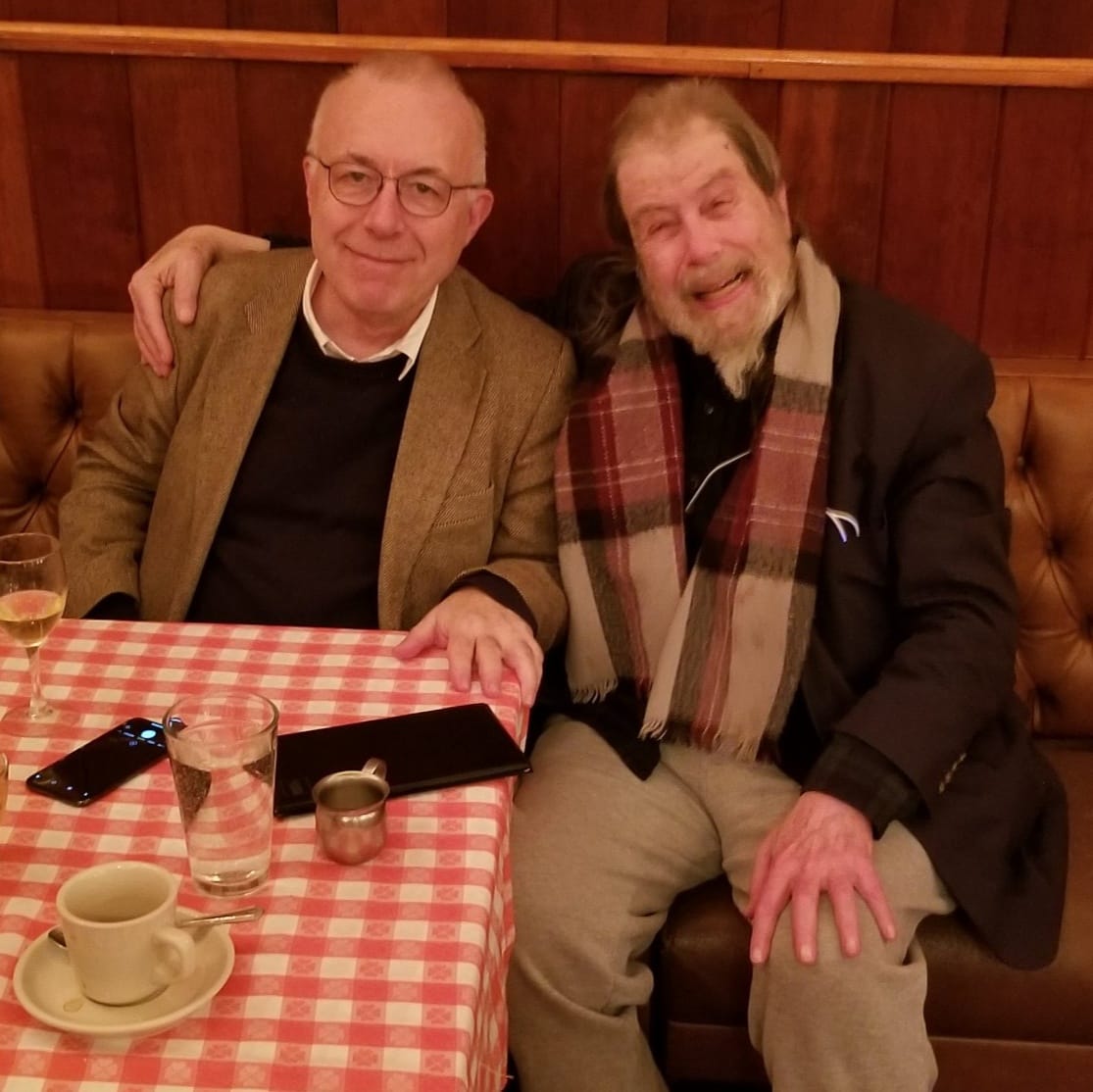
Teri Noel Towe (1948–2025)

There was no one in the Bach world remotely like Teri Noel Towe, who died at his home in Dutchess County, NY, on 3 February 2025. Trusts and Estates lawyer, host of radio music programs from his college years till hours before his death; musicologist, record collector extraordinaire and art historian. His trenchant and firmly held views, often delivered with a specifically ordered Tanqueray Martini (woe betide if the barman reached for the wrong bottle), were aired in a gruff and emphatic manner, which brooked no counter argument.
Behind this combative front existed a kindly and good- humoured man, whose stern, bearded face was more often than not wreathed in smiles and laughter. Indeed, he was paradoxical in looks and manner. While Teri enjoyed dressing up—he was a regular at Princeton reunions in costume as the bewigged founder Jeremy Belcher—he was sometimes less particular about his appearance, sporting a well-served overcoat covered with political badges and topped with a baseball cap, without reference to America’s future greatness. In later years, his walking-frame was adorned with a variety of plastic bags, some containing food; others might have some old Handel scores, and once or twice his Bach autograph. He was not everyone’ s idea of a snappily-dressed New York attorney. But sharp lawyer he was and was liked and admired by many clients dealing with difficult estates involving works of art. As such he was a regular visitor to antique fairs and dealers, and he had an eye for good furniture and fine things.
Among his greatest talents was his gift of friendship, showing tremendous generosity and loyalty to his friends and family, whom he clearly adored. Anniversaries of births, marriages and deaths of his beloved parents Kenneth and Betty (née McCarn) were regularly posted on Facebook. Teri was their youngest child, a late addition to the family of three sons. His education began at Deerfield Academy, Mass, and later at Princeton, where he studied Art History and then Law at the University of Virginia, Charlottesville. At Princeton he began his long career as a record programme host.
Ever present in his conversation were his early Bach heroes: Wanda Landowska, Pau Casals, Rosalyn Tureck and especially William H. Scheide of Princeton, practically a second father and life-long friend. Teri was a regular visitor to Library Place, where Bill presided beneath the Haussmann Bach portrait, now in the Bach-Archiv, Leipzig. Teri was extremely moved when Bill presented him with a manuscript list of Handel’s works in the hand of King George III, which he prized. Teri was an enthusiastic supporter of lost or unfashionable causes. In his advocacy of Richard III as a misunderstood monarch, he was joined by Bill Scheide’s widow, Judith, who was another great friend of his later years. Teri was also an influential voice in the world of Bach iconography, though not all his hypotheses achieved general acceptance.
Teri fostered and encouraged many young performers and was appreciated by generations of musicians in America and Europe. He had a wide range of friends from all walks of life, including his partner Nando, with whom he enjoyed dining in various old-fashioned New York restaurants. Teri lived through the AIDS years and lost many treasured friends, whom he never forgot, faithfully commemorating them on Facebook.
Apart from his collecting, Teri will be remembered for his radio years. His love of Bach was marked by Christmas spectaculars, when he played wall-to-wall Bach for several hours, prefiguring the blanket treatment of individual composers to be adopted by the BBC many years later. He marked the recent change of government in Washington by playing an uninterrupted sequence of requiems.
Most of Teri’s career was based in Manhattan, living in an apartment with reinforced floors to bear the weight of his important record collection, containing many early recordings of Bach and Handel, some unique. But his greatest acquisition was a manuscript continuo part of the Cantata Christ unser Herr zum Jordan kam, BWV 7, annotated by Bach, which he purchased at auction, of which he was rightly proud. He showed it to anyone who might be interested, enjoying the joy and surprise it gave to his unsuspecting guest. I was the fortunate witness of this on a number of occasions at Teri’s favourite French restaurant, Le veau d’or. Despite my initial alarm at the manuscript being flourished between the soup spoons, Teri’s palpable enjoyment of these moments, sharing his love of Bach with his friends, was a joy to observe, an ultimate mark of his generosity and friendship. As he wrote at the death of his heroes on Facebook: Ave atque vale.
Stephen Roe
Finchley
February 2025